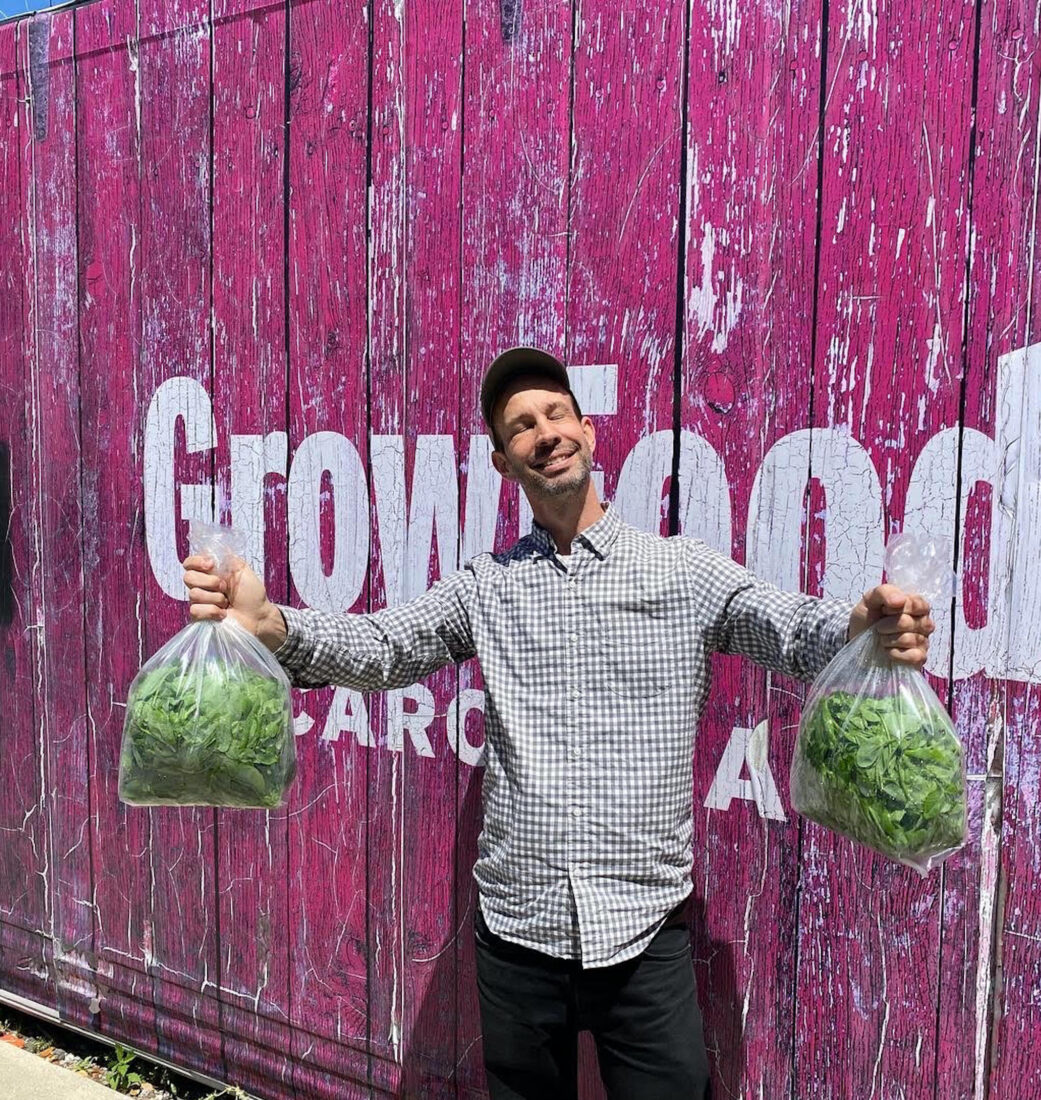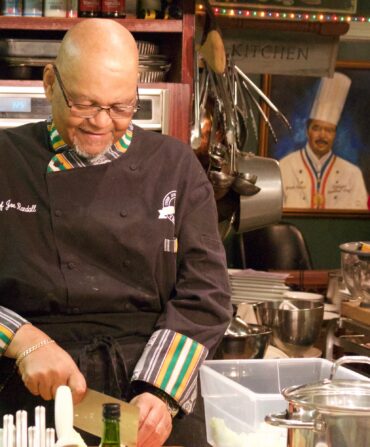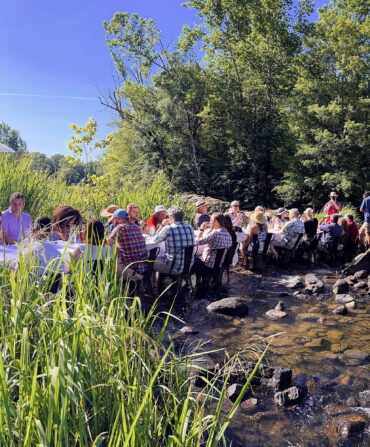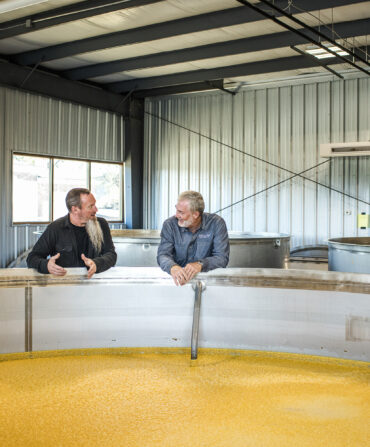Ever since they started a mail-order catalog for boiled peanuts and other Southern pantry staples in college, brothers Matt and Ted Lee have identified themselves strongly with the region’s cuisine. They’ve covered the delicious beat for big-name publications, hosted a TV show, and authored three cookbooks. Now Matt, on his own, has taken the step of becoming a farmer, cultivating a piece of coastal land not far from his home in Charleston, South Carolina. We coaxed him down from his vintage John Deere just long enough to give us the lowdown.

You’ve cooked and marketed plenty of Southern ingredients. Why do you want to get your hands dirty at the not-so-metaphorical roots of that journey?
My brother and I have always been fascinated with the mysteries that surround food production. When you see a chef interact with a farmer supplier, it opens up a whole dialogue about what should be put on the table. Great things can happen when you visit a farm—not just for chefs but home cooks too. Then, during the pandemic, a longtime friend asked me to help find a tenant farmer for forty-five acres on Johns Island that had grown tomatoes for fifty years. A few months later, I had an epiphany. I found the farmer, and it was me.
Having no real experience, how did you get started?
I found a tractor on Craigslist in October of 2020, and a 1960s seed drill that works like a charm. I knew I wanted to raise plants, not animals. And even though I’m definitely a seed nerd, I wouldn’t say I have a green thumb when it comes to vegetables. My first little success was sowing rye as a cover crop, and it came up great. So I settled on growing winter-habitat cereal grains—rye, wheat, oats—that get harvested in June. There’s no weed pressure in the winter, and I get the summers off, basically. I’m now wrapping up my third season. The advantage of the subtropical climate here on the coast is that I don’t need to irrigate, and I’m pretty set on not spraying anything. It turns out you can do a lot by yourself if your interest is grains. I’m a one-man band at this point, but I can plant five acres in the afternoon and still pick up the kids. Last year proved the concept when I was able to harvest a ridiculously small amount of rye, 1,400 pounds.
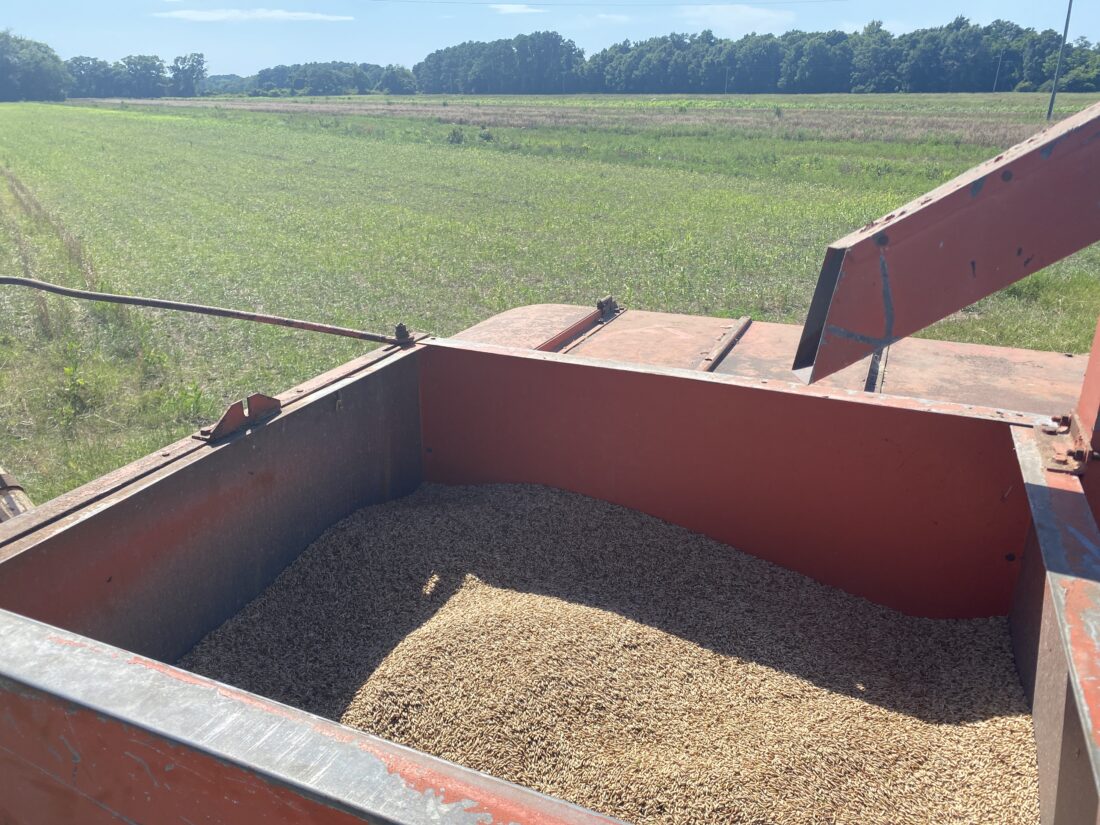
Not to get too personal, but how’s your soil after decades of tomato cultivation?
I became friendly with my local agriculture extension office and got a soil sample analyzed. All I’ve done is add two truckloads of quail poop. It turns out that if you over-fertilize, grains can grow too leggy and blow over. So my undernourishment of my crop benefits me.
Can you harvest on your own, too?
I have a 1958 Allis-Chalmers combine that does a pretty good job sorting out the grains from the stalks and the dust, and I bought a seed cleaner from a hemp operation that I mounted in an enclosed trailer that gets the grain to culinary quality. I’m producing whole grains only, because I’m not getting into the milling business.
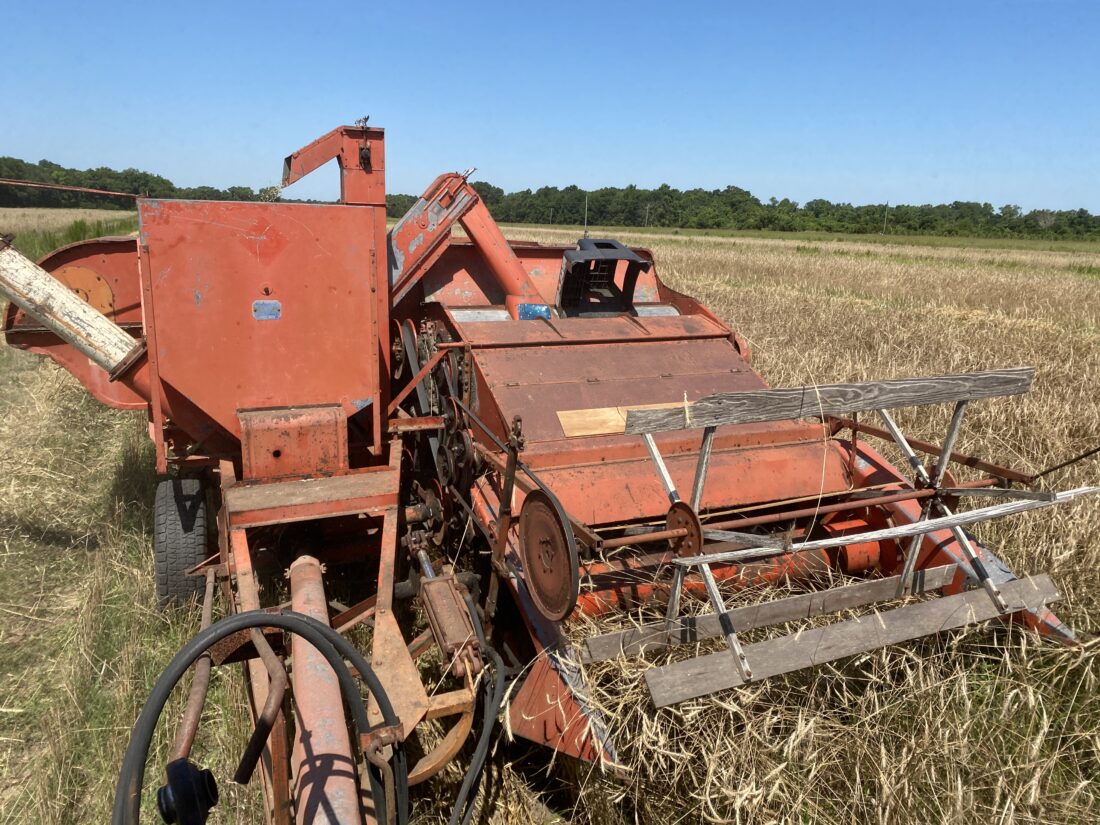
Then what?
I already know so many distillers and brewers and bakers. They are such interesting, nuanced people, and the prospect of harvesting a product in bulk and selling to them would be a pleasure. There aren’t a lot of people growing grains, so the proximity of that market makes it a neat proposition. Local Motive Brewing in Florence is a customer, and Backyard Distillery in Manning took four hundred pounds of rye. Some of that first rye crop went to Post House restaurant in Mount Pleasant and The Ocean Room on Kiawah Island. And the GrowFood Carolina food hub has sold some to chefs who are using them in whole-grain bowls.
What is the biggest difference between hanging out with farmers and being one?
You can’t understand just horticulture, you have to be multi-disciplinary and be able to switch gears instantly. You have to be a welder when equipment breaks. You have to know how to handle paperwork to apply for a grant or organic certification. I’m fortunate to have found some farmers who have introduced me to the concepts of patience and failure. I just can’t imagine how some of them who have more diverse operations do it. I’m just a lily-livered guy seeking the path of least resistance.
Will that path intersect with some of your other pursuits in the future?
The next step is to show up at a chef like Sean Brock’s door with a sample and proselytize about cooking with whole grains. Ted and I are working in the background on a cookbook focused on Southern grains. My wife labels this whole farming thing a midlife crisis, and there’s also the possibility that I may write about my midlife crisis. Meanwhile, when I’m out there tilling, it’s pretty satisfying. Grooming the land is very powerful. I now work harder and do more with my body, and that’s been a blessing.
Steve Russell is a Garden & Gun contributing editor who also has written for Men’s Journal, Life, Rolling Stone, and Playboy. Born in Mississippi and raised in Tennessee, he resided in New Orleans and New York City before settling down in Charlottesville, Virginia, because it’s far enough south that biscuits are an expected component of a good breakfast.


